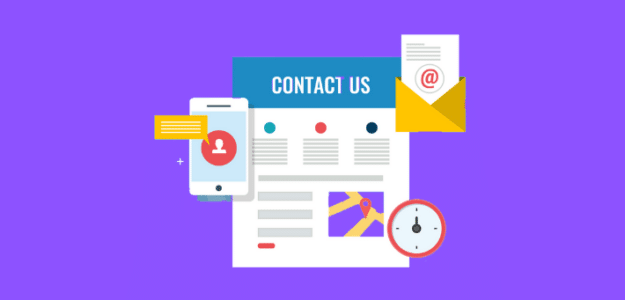The Rise of AI in Political Marketing
The rise of AI in political marketing revolutionizes campaigns, enhancing strategy, voter targeting, and personalized communication for impactful results.

In recent years, artificial intelligence (AI) has transformed numerous industries, and political marketing is no exception. As campaigns become more competitive and complex, political marketers increasingly turn to AI to refine their strategies, engage voters, and optimize resources. This article explores the various ways AI is shaping political marketing and examines its implications for the future of electoral campaigns.
Understanding AI in Political Marketing
These tools enable political campaigns to analyze vast amounts of data, predict voter behaviour, and tailor messages more effectively than ever before. By leveraging AI, political marketers can gain insights that were previously unattainable, allowing them to craft targeted strategies that resonate with specific voter demographics.
Data-Driven Decision Making
One of AI's most significant contributions to political marketing is its ability to facilitate data-driven decision-making. Campaigns can collect data from various sources, including social media, voter registration databases, and online surveys. AI algorithms process this information to identify patterns and trends, helping campaigns understand what issues matter most to voters.
For instance, a campaign might use AI to analyze social media conversations to gauge public sentiment about healthcare. This analysis can inform the campaign's messaging, ensuring that it aligns with voters' concerns. The ability to adapt strategies based on real-time data enables campaigns to remain relevant and responsive.
Personalized Voter Engagement
AI enhances voter engagement through personalized communication. Traditional marketing strategies often rely on broad messaging that may not resonate with all voters. In contrast, AI-driven approaches allow campaigns to customize their outreach based on individual preferences and behaviours.
By utilizing predictive analytics, campaigns can segment voters into distinct groups based on their demographics, interests, and past voting behaviours. This segmentation allows for tailored messaging that speaks directly to the concerns of each group. For example, a campaign might send different emails to young voters focused on climate change and to older voters concerned about social security. Such targeted communication fosters a sense of connection, making voters feel heard and understood.
Chatbots and Virtual Assistants
Incorporating AI-powered chatbots and virtual assistants into campaign strategies is another innovative way to engage voters. These tools provide instant responses to voter inquiries, offering information about policies, candidate positions, and event details. This 24/7 accessibility ensures that voters can interact with campaigns whenever they choose, increasing engagement.
Moreover, chatbots can gather valuable data from these interactions. By analyzing the questions and concerns that voters raise, campaigns can adjust their messaging and address issues that may not have been previously considered. This feedback loop creates a dynamic relationship between campaigns and constituents, allowing for continuous improvement in voter engagement strategies.
Optimizing Ad Spend
AI also plays a crucial role in optimizing advertising spend. Political campaigns often operate under tight budgets, making it essential to allocate resources effectively. AI-driven analytics can assess the performance of various ad placements and strategies in real-time, identifying which efforts yield the highest return on investment.
For example, a campaign may use AI to analyze the performance of digital ads across different platforms. By understanding which ads resonate most with specific voter segments, the campaign can reallocate funds toward the most effective channels. This optimization not only maximizes the impact of the campaign's budget but also increases the likelihood of reaching undecided voters.
Social Media Strategies
Social media has become a cornerstone of political marketing, and AI is revolutionizing how campaigns approach these platforms. AI algorithms can analyze engagement metrics to determine the types of content that resonate best with audiences. This analysis helps campaigns refine their social media marketing strategies for politicians, ensuring that they deliver relevant content that encourages sharing and interaction.
Additionally, AI can monitor social media for emerging trends and hot topics, allowing campaigns to react quickly to the political landscape. By staying ahead of the curve, campaigns can engage in timely conversations that enhance their visibility and credibility among voters.
Ethical Considerations
While the rise of AI in political marketing offers numerous advantages, it also raises ethical considerations. The use of data-driven strategies can lead to concerns about privacy and the manipulation of voter behaviour. Campaigns must navigate these issues carefully, balancing effective marketing with ethical responsibilities.
Transparency is essential in building trust with voters. Campaigns should disclose how they collect and use data, ensuring that voters feel comfortable with their participation. Additionally, campaigns must be vigilant against the potential misuse of AI technologies, such as the spread of misinformation or the creation of deepfake content.
The Role of Regulation
As AI continues to shape political marketing, regulation becomes increasingly important. Governments and regulatory bodies need to establish guidelines that govern the use of AI in electoral campaigns. These regulations should address concerns related to data privacy, misinformation, and the ethical use of AI technologies.
By implementing clear rules, authorities can foster a political environment where innovation flourishes while protecting the integrity of the democratic process. Collaboration between technology companies, political organizations, and regulatory agencies is essential to create a framework that balances innovation with accountability.
The Future of AI in Political Marketing
The future of AI in political marketing is promising yet complex. As technology continues to evolve, campaigns will have access to even more sophisticated tools that enhance their capabilities. Virtual reality, augmented reality, and advanced data analytics are just a few areas poised for growth.
Campaigns will increasingly rely on AI to create immersive experiences that engage voters on a deeper level. For instance, virtual town halls and augmented reality demonstrations could become common, allowing voters to interact with candidates in innovative ways. As these technologies become more accessible, the potential for AI-driven political marketing will only expand.
The rise of AI in political marketing marks a significant shift in how campaigns engage with voters. By harnessing the power of data, personalization, and real-time analytics, political marketers can create more effective strategies that resonate with constituents. However, as AI continues to transform the political landscape, ethical considerations and regulatory frameworks must evolve alongside these technologies.
As we look to the future, it is clear that AI will play an integral role in shaping the political marketing landscape. The potential for innovation is vast, but those who wield these tools are responsible for using them ethically. Balancing technological advancement with the core principles of democracy will define the future of political marketing in an AI-driven world.
What's Your Reaction?













